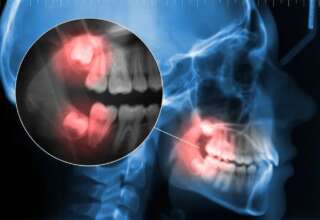
We have heard a lot of good things about vitamins and their importance in our overall health. But what about minerals? Our bodies require many essential minerals, which are divided up into major and trace minerals, which we can find in our foods and supplements like Thorne Research at Supplement First. But what exactly are the essential minerals we need and where can we get them? Read on to find out!
- Magnesium
Magnesium is an important element in our bones, which our bodies need to create protein and contract muscles. We also require magnesium for proper nerve transmission, which helps our bodies maintain a healthy immune system.
You can find magnesium in supplements like Vital Nutrients at Supplement First, but you can also consume them naturally in nuts, seeds, legumes, and leafy green vegetables. Chocolate, artichokes, and seafood are also great sources of magnesium.
- Potassium
Our bodies require potassium for proper fluid balance, nerve transmission, muscle contraction, and control of blood pressure. It can even reduce the risk of kidney stones.
Besides bananas, you can find potassium in other fresh fruits and vegetables, milk, meat, whole grains, and legumes.
- Sodium
Similar to potassium, our bodies require sodium for proper fluid balance, nerve transmission, as well as muscle contraction, and relaxation. This micromineral also helps maintain balanced blood pressure levels.
You can get sodium from table salt, soy sauce, milk, bread, unprocessed meats, and vegetables. Just make sure that you do not have too much sodium, as this can also cause adverse health effects.
- Iodine
Iodine is an essential micromineral found in the thyroid. This micromineral helps regulate growth and development, boosts metabolism, and helps with brain and bone development in pregnant women and babies.
You can get more iodine in your system from bread, seafood, dairy products, iodized salt, and consuming fruits and veggies grown in iodine-rich soil.
- Iron
Iron is another essential micromineral that’s part of our hemoglobin molecule, which is in our red blood cells. Hemoglobin carries oxygen in our bodies, converting blood sugar into energy. Iron is also helpful in blood production and to maintain healthy hair, nails, and skin.
You can get enough iron by increasing your intake of organ meat, red meat, poultry, fish, shellfish, egg yolks, legumes, dried fruits, dark, leafy veggies, and iron-enriched cereals. Vegetarians are at risk of iron deficiency, which is why supplementation may be required.
- Zinc
Zinc is a beneficial micromineral necessary in enzymes. Our bodies require zinc to produce protein and genetic materials. Moreover, it’s required to help heal wounds, maintain healthy fetal development, boost our immune system, encourage proper growth and sexual maturation, as well as aid in sperm production.
You can get enough zinc by consuming meat, fish, poultry, whole grains, and vegetables, though you won’t require too much of it. This mineral is also part of many multivitamins.
Wrapping It Up
Make sure you get enough of these minerals in your diet and supplements starting now!














